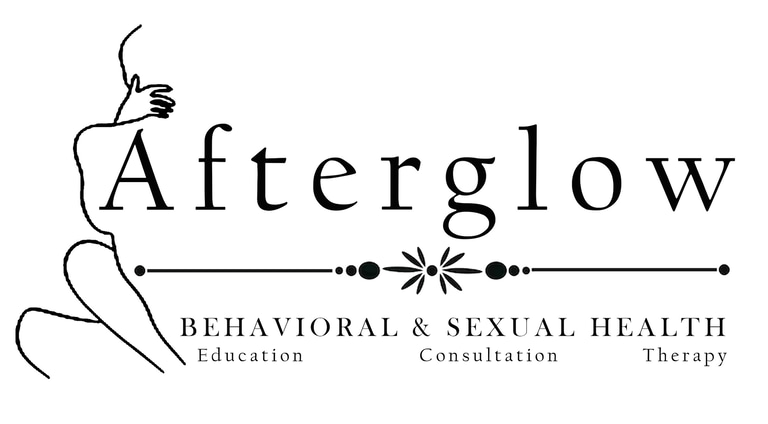Reclaiming the Glow: How Men Bounce Back—Below the Belt and Beyond
November’s focus at Afterglow is all about men’s sexual health—because Movember is more than mustaches; it’s about meaning, recovery, and reclaiming confidence after cancer. This month’s feature, “Reclaiming the Glow: How Men Heal—Below the Belt and Beyond,” dives into the journey men face when diagnosed with prostate, testicular, or penile cancer, exploring how each stage—from diagnosis to survivorship—impacts not just the body, but identity, intimacy, and emotional well-being. With humor, empathy, and data, it highlights that recovery isn’t only physical—it’s sexual, relational, and deeply human. When men learn to see vulnerability as strength and connection as healing, their Afterglow begins to shine again. Healing begins with understanding—Growth begins with Afterglow.
PHYSICAL HEALTH AND SEXGENERAL SEXUAL HEALTH
Dr. Kent
11/6/20255 min read


Let’s talk about a topic that usually gets whispered, dodged, or joked about over beer: men’s sexual health and cancer.
Not just any cancer—the ones that show up in the most private, nerve-filled, pride-connected areas of the male body. Prostate, testicular, and penile cancers affect millions of men every year. Yet when the conversation starts, it’s often about survival—not about the very real impact these illnesses have on a man’s sexual identity, confidence, and relationships.
But here’s the truth: men aren’t just surviving cancer—they’re learning how to thrive after it.
And when we talk openly about what happens through diagnosis, treatment, and recovery, we don’t just change outcomes—we change lives.
Stage 1: Diagnosis—When the World Tilts
No man expects to hear the words, “We found something.” In that moment, time slows down. The room feels smaller. And suddenly, all the background noise—sports, work, traffic—fades behind a single thought: “Am I going to be okay?”
Statistically, many will be. The American Cancer Society reports that prostate cancer has a 99% survival rate when caught early. Testicular cancer—the most common cancer in men under 35—has a 95% survival rate. Penile cancer, though rare, is highly treatable when detected in its early stages.
Still, those numbers don’t quiet the emotional storm. Diagnosis often comes with an invisible weight: fear of losing control, fear of losing function, and perhaps most deeply, fear of losing sexual identity. This is where emotional support becomes essential. Men are taught to “stay strong,” but what they really need is safe space—to express fear, grief, and vulnerability without judgment. Talking about the emotional impact of a diagnosis doesn’t make someone less masculine; it makes them more human.
Stage 2: Treatment—The Body Adjusts, the Heart Rebuilds
Once treatment begins, the focus shifts from what’s happening to how do I get through this? Prostate cancer treatments might include surgery, radiation, or hormone therapy. Testicular cancer often involves removing one or both testicles, sometimes followed by chemotherapy. Penile cancer may require surgical procedures or reconstruction.
All these interventions save lives—but they also come with physical and emotional side effects: erectile changes, hormonal shifts, fatigue, and altered body image. Yet, despite the challenges, hope is built into the biology.
Studies show that with modern nerve-sparing surgical techniques, 60–80% of men regain sexual function within two years after prostate surgery. Hormone levels disrupted by testicular cancer treatments often stabilize naturally within months. And reconstructive surgery after penile cancer has made remarkable progress—allowing most men to return to normal sexual and urinary function.
Here’s what these numbers tell us: The male body is resilient. The key is to treat recovery as a process, not a performance. Sexual health isn’t an “on/off switch.” It’s a relationship between body and mind that can be relearned, nurtured, and adapted. And sometimes, that process deepens connection—because it invites honesty. It teaches that intimacy isn’t only about performance; it’s about presence.
Stage 3: Recovery—Redefining What Feels “Normal”
After treatment ends, men often face a quieter battle: rebuilding confidence in their body. Fatigue lingers. Scars heal slowly. Libido may flicker like a light bulb that’s not sure it wants to stay on. But here’s where progress shines through—when men understand that recovery includes sexual recovery.
A study from the University of Michigan found that men who received sexual counseling after treatment reported 40% higher relationship satisfaction compared to those who didn’t. In other words, talking about it—openly and without shame—matters.
Sexual rehabilitation today goes far beyond pills. There’s pelvic floor physical therapy, vacuum devices, penile injections, hormone replacement, mindfulness-based sexual therapy, and communication work for couples learning to reconnect physically and emotionally.
The best part? Many survivors report that intimacy after cancer feels more intentional and emotionally connected than before. When men let go of performance pressure, they rediscover something deeper—touch that heals, not just excites.
Stage 4: Long-Term Survivorship—Living Fully Again
Once the tests come back clear and the follow-ups stretch farther apart, men enter survivorship—the phase where physical healing meets emotional rebuilding. This is where the conversation often shifts from “Am I healthy?” to “Who am I now?”
Survivors frequently describe a new perspective: gratitude for their bodies, deeper emotional availability, and a renewed understanding of what intimacy really means. In a 2022 Movember Foundation survey, 72% of male cancer survivors said intimacy and body confidence were essential to their long-term healing.
When men integrate sexual health into their overall wellness plan, they thrive—not just physically, but relationally. Partners also play a powerful role here. When recovery becomes a shared journey—open communication, laughter about awkward moments, mutual patience—the outcome isn’t just restored function. It’s restored connection. And yes, laughter helps. Humor turns fear into fuel. It reminds couples that they’re still alive, still together, still capable of joy—even when things feel different.
The Emotional Side of Recovery
Sexual health after cancer isn’t just about restoring erections or hormones—it’s about rebuilding a sense of wholeness. Body image changes. Confidence wavers. Some men feel betrayed by their bodies. Others grieve the loss of what once felt effortless. These are normal, deeply human reactions. Therapeutic support—especially with a clinician trained in sexual health—can help men reframe their experience. Instead of seeing their body as damaged, they can begin to see it as resilient. The scars become reminders not of what was lost, but of what was survived. And with time, touch returns to meaning. Desire reshapes itself. Intimacy evolves.
Stage 5: The Afterglow—From Illness to Intimacy
At Afterglow Behavioral & Sexual Health, we often say, “Healing begins with understanding.” That includes understanding how your body changes—and how it can still experience pleasure, connection, and desire. Sexuality after cancer isn’t about “getting back to normal.” It’s about creating a new normal that honors your experience and your body’s new language. That might mean slower arousal, more communication, or a different kind of physical intimacy. It might mean laughter during the process, a little experimentation, or simply allowing patience to replace performance pressure. What matters most is remembering that sexual identity isn’t erased by illness—it’s redefined by recovery. Men who embrace this truth often discover something profound: they become more compassionate partners, more emotionally open individuals, and more confident in their bodies than they ever were before.
Hope, Humor, and Healing
Here’s the bright side—literally: survival rates are rising, treatment options are expanding, and recovery stories are multiplying. Prostate, testicular, and penile cancers used to carry stigma and silence; now, they carry conversation and connection. The body can heal. The mind can adapt. And sexuality—when treated with compassion, communication, and a bit of humor—can return with new meaning and new depth. Because the real story isn’t about what cancer takes away. It’s about what it gives back: perspective, purpose, and permission to live fully.
And that’s the Afterglow—when a man realizes that surviving isn’t the end of the story.
It’s the start of a brighter, more connected one.
Healing begins with understanding—Growth begins with Afterglow.
Connect with us
© 2025. All rights reserved.
dr.kent.sexhealth@gmail.com


